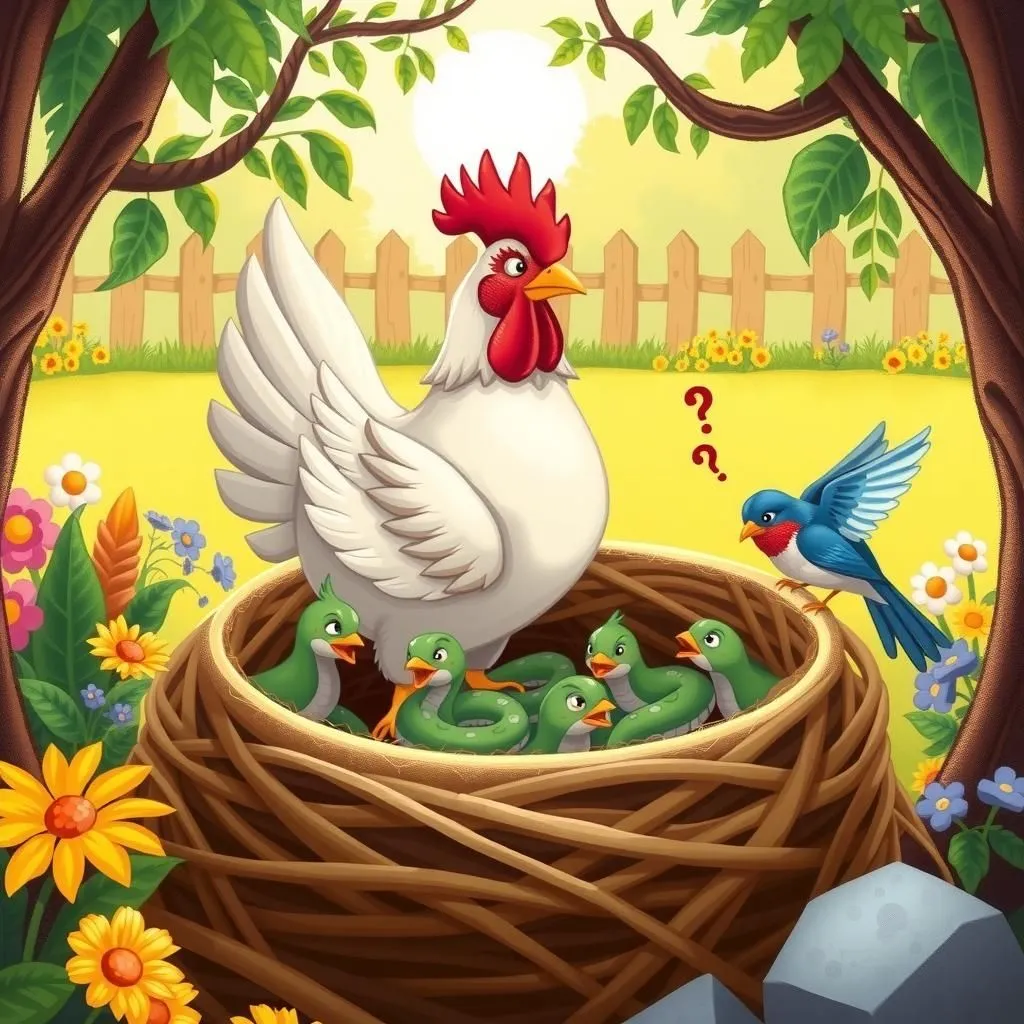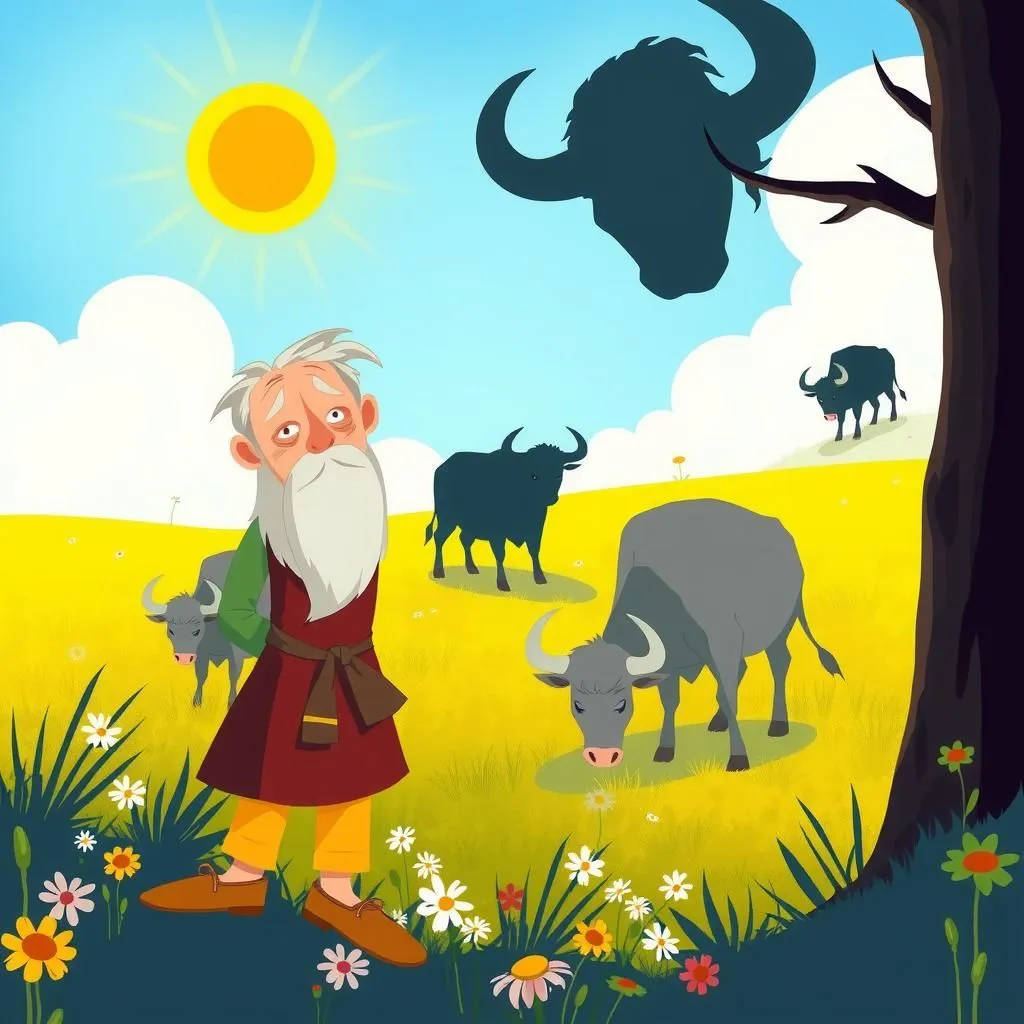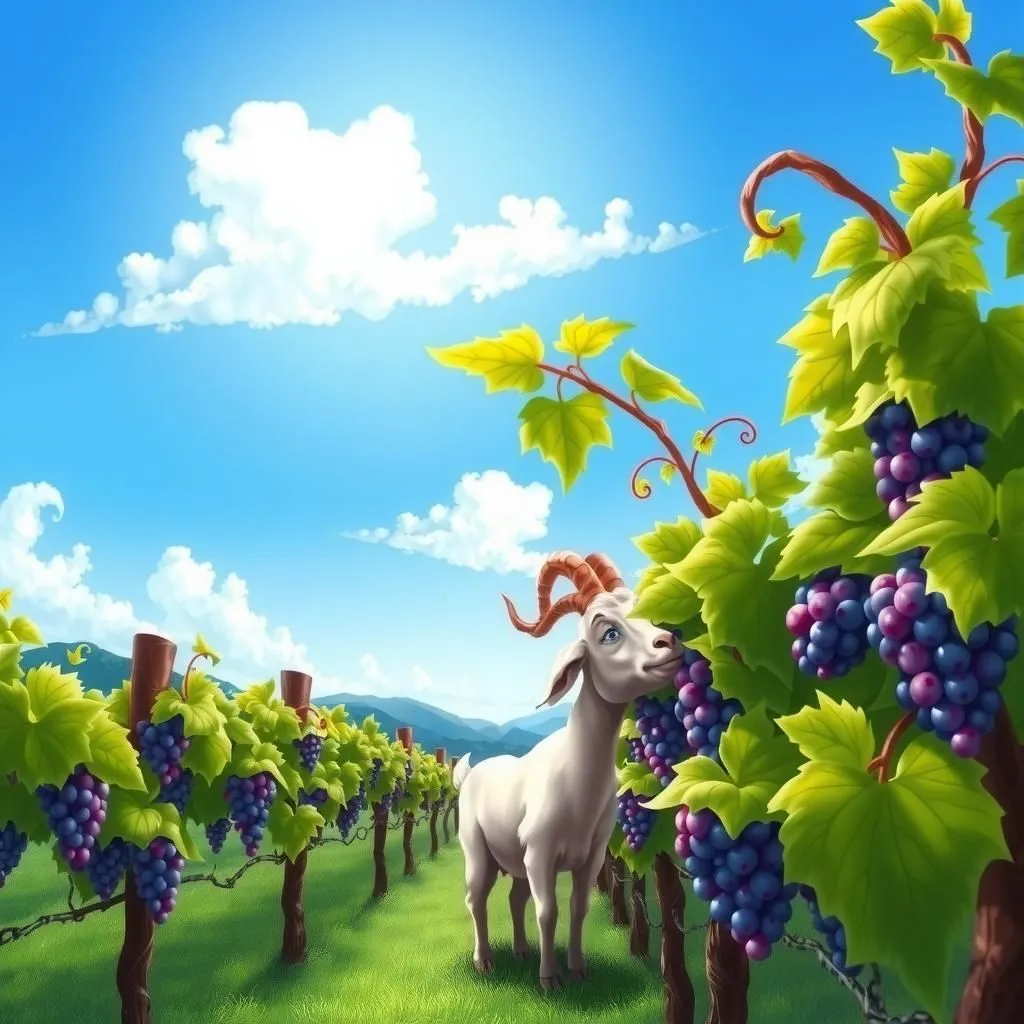
The Hen and the Vipers
In the entertaining moral story "The Hen and the Vipers," a hen hatches a brood of vipers, prompting a swallow to criticize her for nurturing creatures that could harm her. The hen calmly defends her choice, stating that she plans to enjoy one of the vipers as a delicacy, illustrating a simple lesson about making the most of one's circumstances. This quick read story delivers a well-known moral about pragmatism and the complexities of nurturing.


